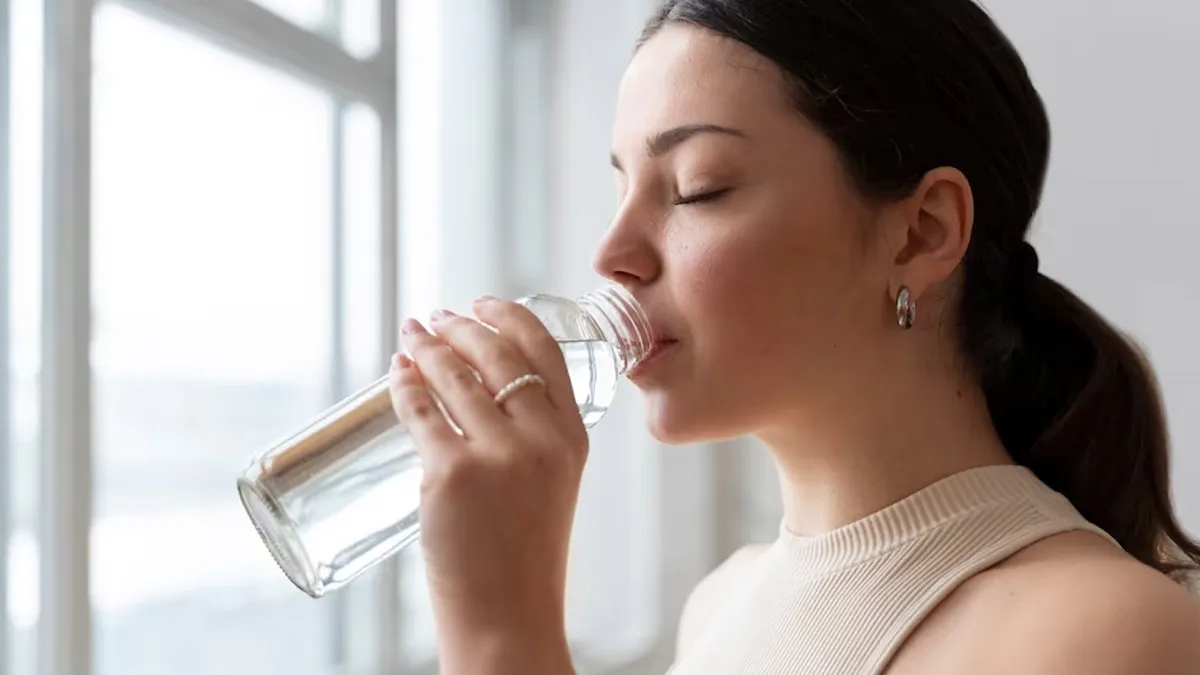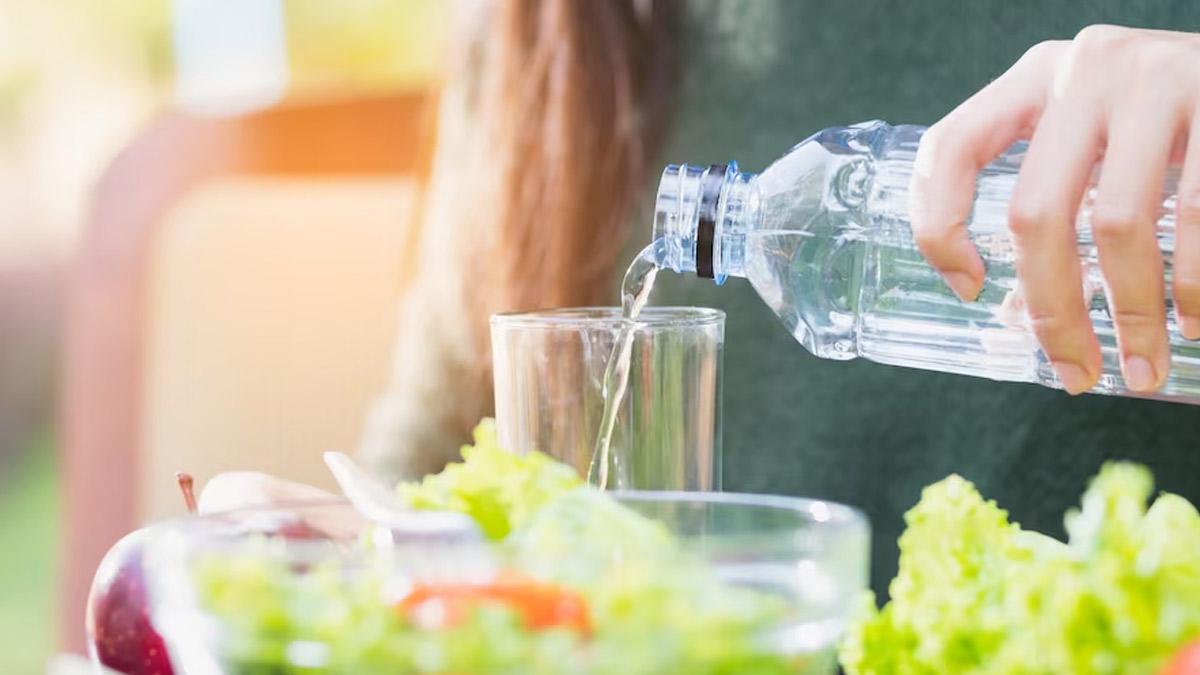
Have you ever been tired, distracted, or foggy even after a good night's sleep? The offender might not be stress or coffee deprivation, it might be dehydration. Even science suggests that slight fluid loss can impair brain function, making it more difficult to focus, remember, and keep your mind sharp. Since our brain is composed primarily of water, hydration is as vital for clarity of mind as it is for physical well-being. That is why aiming for about 13 glasses a day could be the secret to clearer thinking, improved mood, and more energy. Read ahead to know why.
Table of Content:-
Why the Brain Needs Water
To understand better, we reached out to our expert, Shrey Kumar Srivastav, Senior Consultant and General Physician, Sharda Hospital - Noida, and he explained that our brain consists of almost three-fourths water, and so hydration is of the utmost importance to its proper functioning. Here is how water helps:
- Supplies oxygen and nutrients to brain cells
- Clears waste and toxins
- Maintains nerve signal flow smoothly
- Aids the production of neurotransmitters (the messengers that manage mood and memory)
“If we don't drink enough, there could be a 1 to 2% drop in body water which can lead to brain fog, forgetfulness, and irritability. Research indicates that dehydrated individuals perform more poorly on memory, attention, and problem-solving tests than those who are well-hydrated.
Also Read: Breathing Right Can Lower Stress Instantly, Suggests Expert | Here's How To Do It

Benefits of 13 Glasses of Water a Day
“You’ve probably heard of the 8 glasses a day rule. While that’s a good start, newer health guidelines suggest that around 3 liters for men (about 13 glasses) and 2.2 liters for women (around 9 glasses) is more ideal for both body and mind,” suggested Dr Srivastav. Drinking this amount daily helps:
- Prevent sudden dips in concentration
- Reduce mental fatigue
- Keep mood swings in check
- Improve overall energy levels
“Of course, requirements vary, if you reside in the heat, work out regularly, or sweat a lot, your body might need more,” he added.
Mental Symptoms of Dehydration
According to Dr Srivastav, our body sends definite signals when your brain requires additional water. He recommended to be aware of:
- Brain fog
- Headaches
- Irritability
- Drowsiness
- Forgetful
Also Read: Can Skipping Rest Age You Faster? Find Out Here

Easy Tips to Stay Watered
Follow these expert-approved tips to stay hydrated and consume 13 glasses of water a day:
- Wake-up wake-up: Begin every morning with one glass of water prior to tea or coffee.
- Technology reminders: Program reminders or use hydration apps to remind you.
- Water-rich foods: Include watermelon, cucumber, celery, and oranges in your meals.
- Infused water: In case plain water is too dull, throw in lemon, mint, or berries for taste.
- Check your pee: Pale yellow indicates you're hydrated; dark yellow indicates you need to drink more.
Can You Drink Too Much Water?
“Yes, consuming too much water in a short space of time can result in a condition called hyponatremia (low levels of sodium), which is hazardous. This is infrequent, but it's a reminder that equilibrium is essential,” Dr Srivastav noted. Dilute your consumption throughout the day instead of consuming too much at one time.
Bottomline
Hydration is not only physical, but also a mental performer. By shooting for about 13 glasses daily, you can stay sharper, your mood more stable, and your energy up. So the next time you're feeling hazy, don't simply reach for coffee, begin with a glass of water.
Also watch this video
FAQ
Q1. Can dehydration actually make me forgetful?
Yes, dehydration will slow down brain function and make it more difficult to store or remember information.Q2. Does coffee and tea qualify as hydration?
Yes, but in moderation. While they do hydrate, caffeine is known to cause increased urination, so pair them with plain water.Q3. How can I tell if I am getting enough water?
The simplest method is to look at your urine colour, pale yellow indicates you are properly hydrated.
How we keep this article up to date:
We work with experts and keep a close eye on the latest in health and wellness. Whenever there is a new research or helpful information, we update our articles with accurate and useful advice.
Current Version
Sep 29, 2025 15:27 IST
Modified By : Tanya SrivastavaSep 29, 2025 15:27 IST
Published By : Tanya Srivastava
